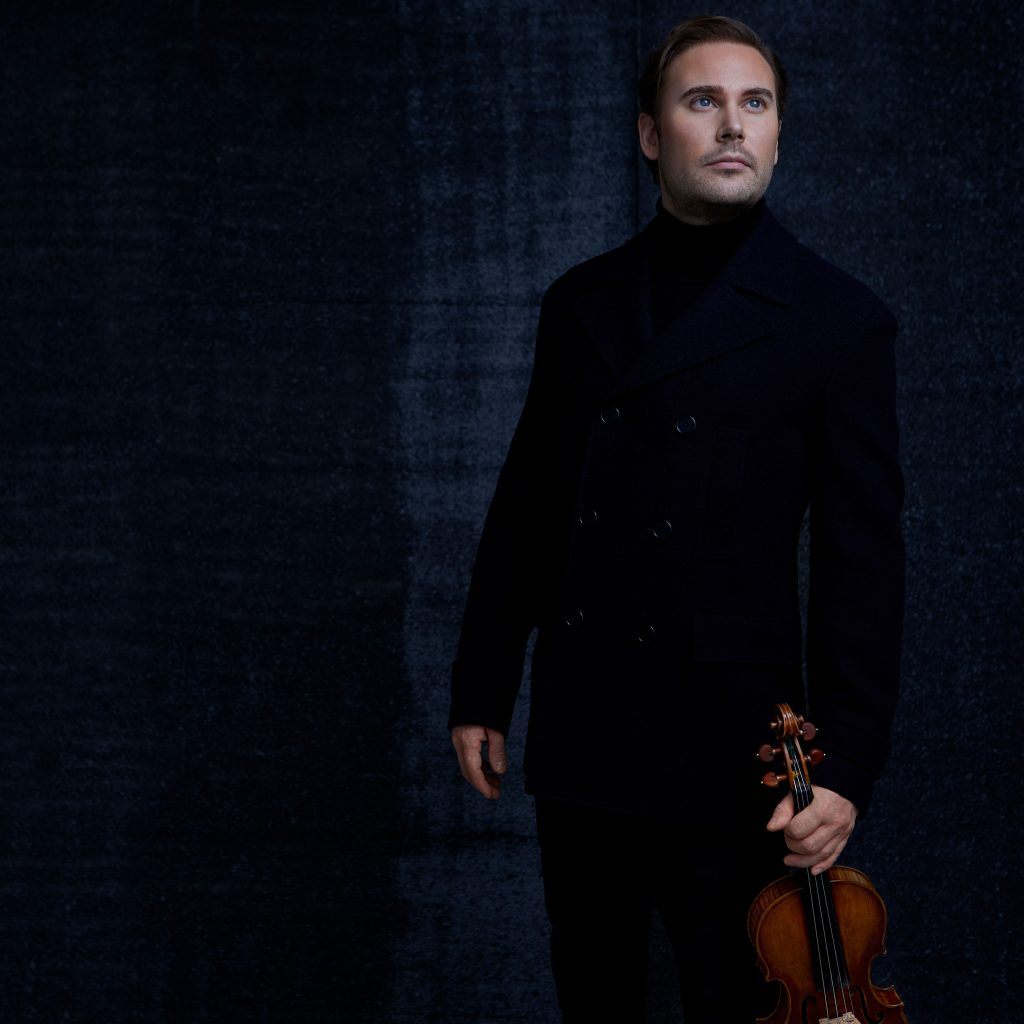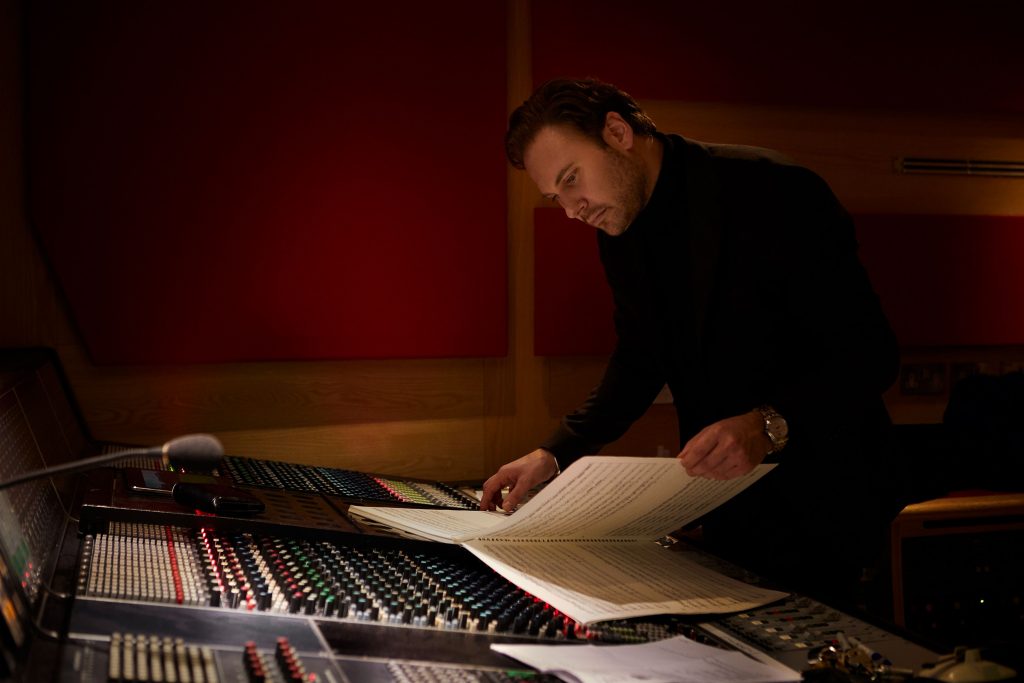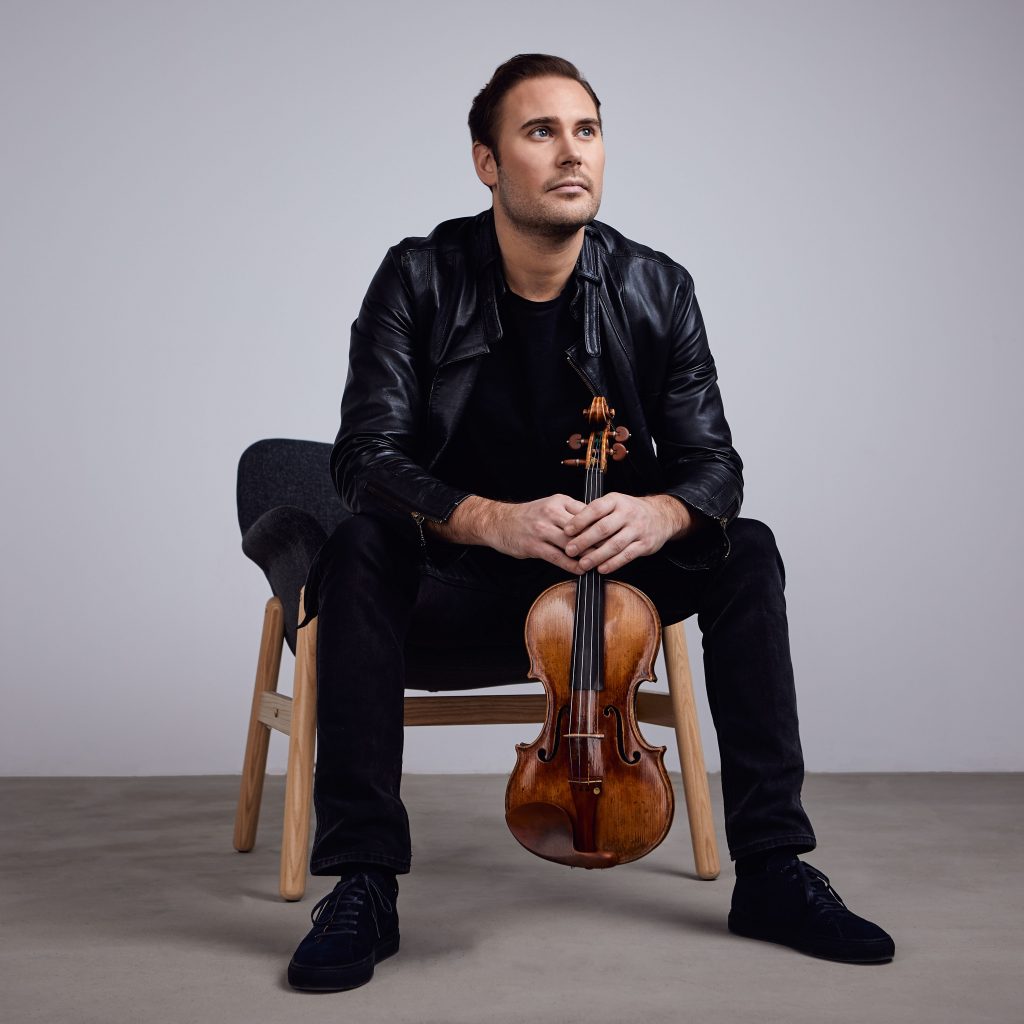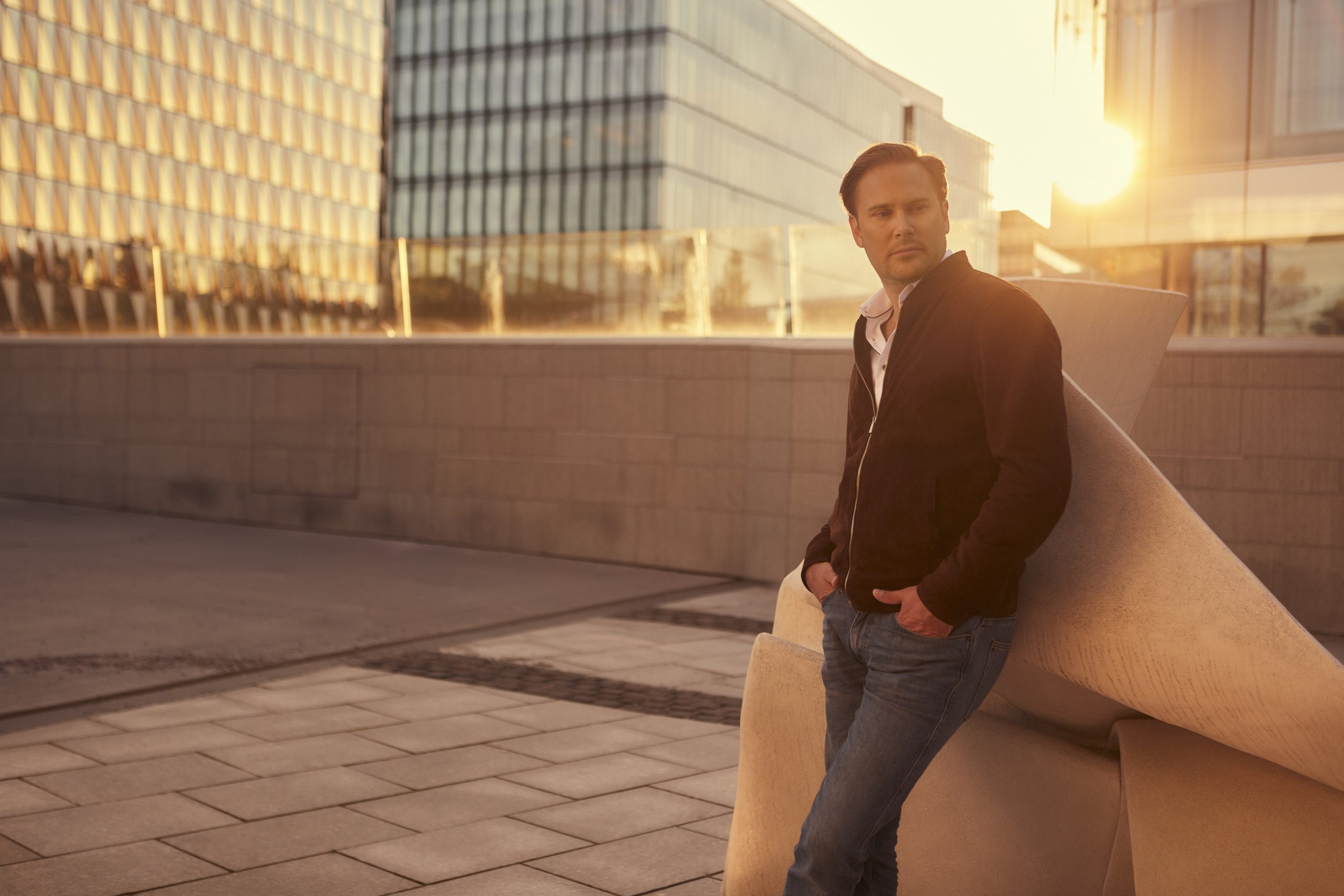← Back
Christian Svarfvar, Violinist
Interview, 30 June 2020
He is the internationally acclaimed concert violinist widely known for his beautiful tone, stellar technical ability – and fine taste when it comes to which projects to work on.
Playing the violin for a living was never a wild guess for Stockholm native Christian Svarfvar.
Growing up in a musical home guided his life choices, as everyone in the family was – or later went on to become – accomplished classical musicians in their own right.
But more than simply making a living from it, Svarfvar ended up becoming one of Scandinavia’s most sought-after concert violinists.
His ability to choose interesting projects, technique and sensibility and openness towards different genres has made him a big name within classical music worldwide.
He has given solo concerts in historic venues such as New York City’s Carnegie Hall and Cité de la Musique in Paris and recorded an album together with The London Philharmonic.
All this and still only in his late 30’s, a tender age for a classical musician. So, even the future is looking bright.
His latest project is entitled “ReBach”. A revamp of Bach’s violin concertos, made in collaboration with Swedish pianist Johan Ullén.
As fans of great music and great people with extraordinarily good taste, we wanted to hear more about Svarfvar’s journey towards stardom, his thoughts on music’s place in the art universe and what his years as a celebrated violinist in New York were like.

You started playing the violin at age four. What is your earliest musical memory?
– I have one from the age of five or six, when I was in kindergarten. I had a violin recital, which was my first ever performance. I guess it was my first time on some kind of “stage”.
Your father was a violinist, concertmaster and a teacher, your mother a violin-teacher and today your sister is a violinist for the Stockholm Royal Philharmonic Orchestra; was there even a chance of you picking up another instrument than the violin?
– That’s a good question. I was almost more inclined to play the piano. It was boring to practice but much more fun to play, as I recall.
Much because the piano allowed me to play stuff I had heard on the radio. The violin is more limited in that sense, because you can only play melodies, not chords. In spite of that I never pursued the piano the way I ended up pursuing the violin, even though I spent the same number of hours playing it. From an early age I was set on becoming really good at playing the violin, but that drive wasn’t really there when it came to the piano. Even though I enjoyed playing it just as much.
Eventually the violin became your instrument of choice, was that because it was such a familiar part of your early life?
– Yes, I think so. There were always musicians hanging out at our house, at all hours of the day. Conductors, composers, soloists, almost all of them internationally acclaimed. There was an endless stream of dinner parties and those were the only human interactions I had for a very long time. Up until I started school, I was under the impression that most people were musicians in one way or another, or that they played the violin. I really idolized my father from an early age, which enabled my interest to live on, even though I didn’t have any friends who played music.
“The works of the old masters tend to stick around, they have survived for hundreds of years for a reason.”

What is the key to remaining interested and making progress for a child taking up such a complex classical instrument as the violin, in your opinion?
– I was lucky to grow up in a musical home. I don’t think that it’s always positive to have done that, but it was in my case. You need a community or a platform where you can be around your peers. Because it’s not like you’re the hippest kid in school if you play the violin. You need a community where you are allowed to be a little geeky. And you need the support and encouragement from your parents. It’s one thing to do something challenging if everyone else is doing it, but in the case of playing the violin, you are very lonely at times. Encouragement is key in order to remain interested.
The discipline required to excel in classical music, or in jazz; is that something you can learn, or do you believe that’s something you are born with?
– Great question. Music gave me goosebumps from an early age and I thoroughly enjoyed it, so that helped me endure long hours of practice. But also, the element of competition within the community, the desire to be the best. That helped me manage the long, arduous hours I needed to put in. It can be a very powerful driving force. It could be really boring at times, especially when all my friends were out having fun. I didn’t know where this was going to take me either. It wasn’t until I was ten years old that I suddenly felt I had talent that perhaps superseded many others.

Your tone is something you’ve been celebrated for by critics and connoisseurs over the years. Of course, one has to practice extensively to achieve a nice tone, but do you believe the ability to play a truly moving tone lies within pure and natural talent?
– Yes, I actually believe that. Over the years it has become my conviction that the hours you put in doesn’t necessarily teach you that part. Perhaps not within any field. But yes, I believe you have to have some kind of innate sensibility, from birth or developed over time. But it’s equally important to be given a musical or aesthetical ideal early on. Something I was privileged enough to get from home. I was lucky to watch my dad, who had that same ability, move people with his tone. I think that is crucial when it comes to the violin, the ability to procure a beautiful tone, rather than being technically skilled. That is of course fascinating, but at the end of the day, you want to hear beautiful music and be moved.
Bach saw his life as a mission from God, to speak his words through music. Is music the most noble artform, the truest vessel for reaching a person’s inner being?
– Well, for me it absolutely is. When I watch a painting by Edward Munch, for example, I can be moved on so many different levels, but I still have to take detours to get there. Perhaps because my knowledge of art is limited. But I think the power of music is more direct. There is no two ways about it, it hits you with full force.
Can it have anything to do with the fact that music consists of physical soundwaves that actually enters your body, and if you feel it and enjoy it, it can be a religious experience?
– Sure, it can absolutely be that. You don’t need to process it or think about it. It just hits you without you having to analyze it, you are just struck by emotion instantaneously.

What sacrifices have you made in order to achieve your level of greatness?
– At one point in my life it really bothered me that I dropped out of high school to go straight to the Royal College of Music in Stockholm. It had its positives as well and turned out to be a wise choice in the end, but it was tough coming there being the youngest student. Thrown straight into a university environment being three years younger than most people is tough. It also meant, not only maturing faster than normal but to be introduced to the party lifestyle that comes with attending university, which perhaps was a little too soon for someone who was only sixteen. I couldn’t really handle it and ended up taking a six-month sabbatical to figure out what I wanted to do. But musically it gave me a tremendous amount of knowledge and wisdom.
You studied at Juilliard under the late Robert Mann, how do you remember those years and what was your experience in New York like?
– At least I was established within my own circle in Sweden, but it was amazing coming to New York and meeting all these wonderfully gifted and driven violinists. Suddenly, from being top of the heap back home, I found myself surrounded by fierce competition.
How did you react to that?
– Quite positively. I had traveled and seen a lot, but at a school like Juilliard it becomes so centralized with all these fantastic musicians that are literally handpicked from around the globe, especially from Asia. But at the same time, I had my concert enterprise running from before, and I was able to borrow a Stradivarius from school for my performances. It was a wonderful time in a lot of ways, and I tried my best to establish myself on the New York-scene. But I also had a very passionate relationship here in Sweden at the same time, which perhaps wasn’t ideal for me, given the situation I was in, trying to make it in America. I had set everything up pretty well for myself with an American agency who wanted to represent me and a solid tour schedule but ended up moving back to Stockholm after I was done with my studies. Perhaps not the smartest move in hindsight.
“I think that is crucial when it comes to the violin, the ability to procure a beautiful tone, rather than being technically skilled.”
New York is a city of temptations. With your status as a young and gifted concert violinist, were you enjoying the good life during your years in the city?
– To a certain extent, sure. I was young and not only a student, but a busy performer, so money was coming in. I had a great apartment on the Upper West Side, close to Lincoln Center, and school didn’t keep me too busy, so there were opportunities to let loose …
You’ve recorded and performed pieces by some of the most esteemed composers in history; is there anyone in particular you enjoy playing?
– A standard answer could be that you most enjoy what you are currently playing, but that is simply not true. Especially a lot of contemporary music, you play it once and never pick it up again. The works of the old masters tend to stick around, they have survived for hundreds of years for a reason. I tend to lean more towards romantic music rather than Mozart, for example. I love Mozart, but it can sometimes be a little flat and banal. But other times it can be like Bach, a highly “religious” experience. My sound fits better with composers like Rachmaninoff, Tchaikovsky and other romantics from around 1890. Composers whose music contains a thunderstorm of emotions.

You play on a Stradivarius from the 18thcentury, worth millions. I imagine travelling and carrying such a precious instrument has its moments of panic and stress. Did you ever experience one of those?
– There have been several incidents over the years, things you should perhaps leave out of this article… There was one time when I was forced to stuff my Stradivarius away in the luggage compartment of a bus. It wasn’t a huge deal, but very weird that they wouldn’t let me bring it on board the bus. It got blown up by the media of course, and the fund who had lent me the violin weren’t too happy about the whole thing.
From the upcoming project “ReBach” in collaboration with pianist Johan Ullén.
Set for release in late summer/early fall of 2020.
You are releasing an album in the spring with Swedish pianist Johan Ullén, where the two of you have “re-vamped” Bach’s violin concertos. Can you tell us a bit about that project?
– It started when I was listening to a remix of Vivaldi’s “Four Seasons”. Pieces of music that I have played a ton and listened to a million times. They are so good that they have been performed in many different ways. Then there was a famous violinist called Daniel Hope who had made a remix alongside Max Richter, a composer and pianist who has written a lot for Hollywood films. It was so good that I kept playing it at home and thought if it was possible to do something similar. So, one night I’m having a beer with Johan and I present this idea to him and say that the closest we can get is by doing the same with some of Bach’s music. But it’s hard to do a remix if the music has no pulse, and pulse can most commonly be found in older pieces. Not so much in romantic music, where it goes back and forth all the time. So, we decided that he would come up with a remix of Bach’s violin concertos. There are a few passages in these concertos that are sublimely beautiful, but they are pretty far apart. We decided to do some cherry picking and accumulate these passages into a remix, while maintaining the essence of Bach’s originals. The end product became sixty minutes of music divided into twelve tracks, almost reminiscent of pop tracks. Some of them are very sparse and acoustic, while others are more thoroughly arranged film music. It’s a blend of genres. We will release it after the summer of 2020, I’m really excited about it.
For more info please visit:
www.christiansvarfvar.net